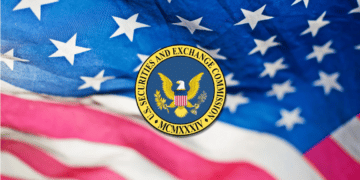Coinsquare exec’s thoughts on being the first regulated crypto exchange in Canada shed light on how far Canada has come since the days of bad actors who made regulators take a tough stance on crypto.
The Days Of Bad Actors And Good Regulators
The early generation of Canadian cryptocurrency users are still troubled by this tale today. Gerald Cotten, the co-founder of QuadrigaCX, Canada’s largest bitcoin exchange at the time, passed away in India four years earlier. However, Cotten transferred virtual wallet keys into cold storage before his death, which resulted in the permanent loss of $190 million in customer cash.
The incident led to a crisis of confidence in the nation’s developing cryptocurrency industry and made policymakers extremely dubious of blockchain technology. Old wounds do, however, eventually mend. Today, with $8 billion in total trading activity since 2014, Coinsquare has risen to become one of Canada’s top cryptocurrency exchanges.
Coinsquare Exec’s Thoughts On Being The First Regulated Crypto Exchange In Canada
Chief operating officer of Coinsquare Eric Richmond highlighted that there is now a regulatory structure in place to stop similar occurrences from happening again in an interview with Cointelegraph business editor Sam Bourgi:
“We’ve taken a much different approach than the U.S. Unlike firms south of the border, all crypto trading platforms here need to be registered with the Investment Industry Regulatory Organization of Canada (IIROC). There is a backlog with processing applications at the moment, while we had ours submitted from back in Nov. 2020 as we wanted to be one of the first regulated players out there.”
All cryptocurrency exchanges are granted a two-year exemption during which they must register with the IIROC due to the regulation’s recent implementation. The sole company in the sector that is registered with IIROC at the moment is Coinsquare. In a similar vein, the business has tight guidelines in place for listing new tokens to protect its users from fraud:
“We put it through evaluating the underlying technology, the marketing, the team behind it, analyzing potential legal issues, irregular price movements, etc. We go through his in-depth analysis across different teams, such as compliance, business, legal, and security. It’s about genuinely understanding the token. And if it passes the tests, then the listing threshold is set.”
Exchanges that are reportedly not adhering to the new laws have come under intense scrutiny from Canadian regulators. Binance stopped operating in Ontario in March and acknowledged to the Ontario Securities Commission (OSC) that it was not registered in the province. Similar to this, the OSC prosecuted cryptocurrency exchanges KuCoin and Bybit for allegedly breaking securities regulations.
Read the latest cryptocurrency news.
DC Forecasts is a leader in many crypto news categories, striving for the highest journalistic standards and abiding by a strict set of editorial policies. If you are interested to offer your expertise or contribute to our news website, feel free to contact us at [email protected]
























Discussion about this post